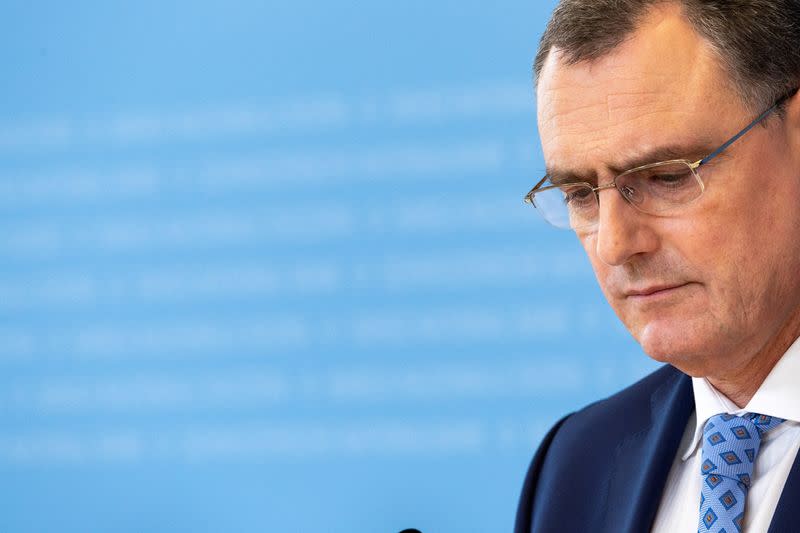Swiss National Bank could consider rotating chairmanship, head of group says

ZURICH (Reuters) -The Swiss National Bank could consider a rotating chairmanship as it seeks a successor to Chairman Thomas Jordan, who will step down from his post later this year, the head of a group which campaigns for accountability at the SNB said on Tuesday.
SNB Vice Chairman Martin Schlegel has been floated by Swiss media and experts as favourite to replace Jordan, who announced last month he would be stepping down after 12 years at the helm.
"The SNB could consider allocating the chairman role on a rotating basis," Yvan Lengwiler, chairman of the SNB Observatory, told Reuters. "The chairman is just first among equals, he shouldn't make all the decisions."
Currently, the SNB's rate-setting governing board consists of three members - Jordan, Schlegel and newcomer Antoine Martin who joined from the Federal Reserve Bank of New York.
Lengwiler likened the situation to the revolving presidency of Switzerland, where each person in a seven-member cabinet takes turns holding the role for one year.
"That would restore more equality to the decision making process at the SNB," said Lengwiler, of the University of Basel and a former president of the Swiss government's group of experts on banking stability.
Stefan Gerlach, another member of the Observatory, and a former deputy governor of the Central Bank of Ireland, said he thought Jordan had become the dominant voice at the SNB.
"It's my impression that Thomas Jordan has been too powerful and more so than intended by the legislation," said Gerlach, who is now chief economist at EFG Bank.
"In previous years it was a more collective decision, which makes it less important who the chairman is."
In a report published on Tuesday, the Observatory also said the SNB should conduct a broader search for a new member to its governing board.
The report said it was not normal practice for the top central bank role to be promoted internally, saying it risked the views of society being ignored.
The SNB declined to comment on the report.
(Reporting by John RevillEditing by Bernadette Baum)

